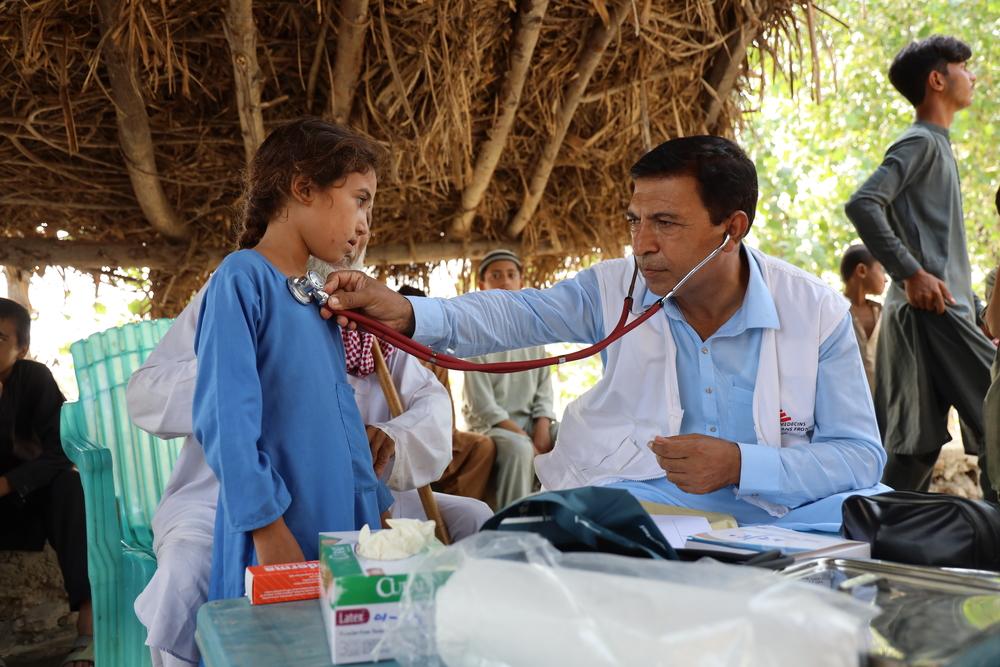MSF medical guidelines provide practical recommendations and standardised protocols for use in resource-limited settings. They reflect the know-how gained through MSF’s medical activities and operations. The guidelines draw from scientific data published by the World Health Organization and other leading medical institutions, as well as published, peer-reviewed scientific literature.
They are available in both printed and digital versions, with the digital version accessible via both the MSF medical guidelines website and a mobile application.
The Clinical guidelines handbook provides key diagnostic and treatment information for medical staff involved in curative care and, to a lesser extent, the preventive aspects of the common diseases encountered in health centres and primary hospitals. The Essential drugs guide is a practical manual for physicians, pharmacists, nurses and health auxiliaries involved in curative care and drug management.
Picture: Bangladesh, guidelines, description: MSF medical guidelines contain practical recommendations and standardized protocols for use in resource-limited environments. copyright: MSF
The first editions date back to the 1980s
The first MSF guidelines were developed in the 1980s to respond to a need for coherence and consistency in the care provided in MSF projects. Over the years, they have been regularly reviewed, improved and updated in line with new evidence. The 2023 printed editions contain all the updates published online since the last printed version in 2019.
Picture: Pakistan, guides in a hospital, description: MSF guidelines are distributed around the world, including Pakistan. copyright: MSF
MSF guidelines are distributed around the world
MSF international medical guidelines are used by tens of thousands of health professionals around the world and not only in MSF projects. They are part of the World Health Organization’s emergency health kits, which are distributed in crisis settings of displaced people. In addition, more than 600,000 people from around the world consult the online versions of the guidelines each month. There are more international guidelines available to the public on the website and the app. They cover topics such as obstetric and newborn care, management of cholera and measles outbreaks, tuberculosis treatment and public health engineering.
We need feedback
Receiving feedback from readers is crucial to improving MSF guidelines. All medical professionals are encouraged to submit comments, accompanied by references and proposals, through the Contact form on the MSF Medical Guidelines website or app.
